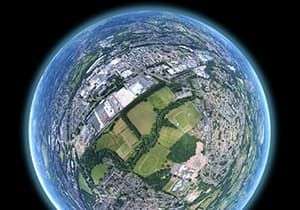Introduction
Preserving our planet is not just an option but a moral imperative in the face of escalating environmental challenges. As human activities continue to impact Earth’s delicate ecosystems, from the depths of the oceans to the highest mountain peaks, the need for concerted efforts towards conservation and sustainability becomes increasingly urgent. In this comprehensive guide, we delve into the various facets of environmental preservation, exploring why it’s crucial to act now, the profound challenges we face, and the actionable steps individuals and communities can take to safeguard our planet for future generations.

The urgency stems from the interconnected threats posed by climate change, habitat destruction, pollution, and the depletion of natural resources. These issues not only jeopardize biodiversity and disrupt ecosystems but also threaten the well-being and survival of countless species, including our own. The consequences of inaction are already visible, with rising sea levels, extreme weather events, and loss of biodiversity becoming increasingly prevalent worldwide. Recognizing this, it’s imperative that we adopt sustainable practices, promote environmental stewardship, and advocate for policies that prioritize conservation efforts.
Through education, advocacy, and collective action, we can address these challenges head-on. By understanding the root causes and impacts of environmental degradation, we empower ourselves to make informed decisions that support a healthier planet. From reducing our carbon footprint and supporting sustainable businesses to engaging in community initiatives and advocating for policy change, every action counts towards preserving Earth’s natural beauty and ensuring a sustainable future for generations to come.
Why Preserving Our Planet Matters
Environmental Impact of Human Activities
Human activities such as deforestation, industrialization, and pollution have profoundly altered natural habitats and ecosystems worldwide. The rapid pace of urban expansion and agricultural development has led to widespread deforestation, resulting in the loss of crucial habitats for countless plant and animal species. This loss of biodiversity not only threatens the survival of various species but also disrupts entire ecosystems that rely on intricate ecological relationships for stability. Furthermore, industrialization has introduced pollutants into the air, water, and soil, contaminating natural resources and posing health risks to both wildlife and human populations. The emission of greenhouse gases from industrial processes and transportation systems contributes significantly to climate change, leading to rising global temperatures, altered weather patterns, and more frequent extreme weather events.
This disruption not only threatens biodiversity but also disrupts climate patterns, affecting agricultural productivity and water availability. Moreover, the depletion of natural resources such as freshwater, minerals, and fossil fuels further exacerbates environmental degradation and compromises the Earth’s capacity to sustain future generations. As human populations continue to grow and economies expand, the pressure on natural ecosystems intensifies, highlighting the urgent need for sustainable practices and conservation efforts to mitigate these impacts. Addressing these challenges requires a collective effort to promote environmental stewardship, foster sustainable development, and adopt policies that prioritize conservation and biodiversity protection. By acknowledging the interconnectedness of these issues and taking decisive action, we can work towards restoring balance to our planet and ensuring a sustainable future for all life forms.
Consequences of Climate Change
Climate change, exacerbated by greenhouse gas emissions from human activities, poses significant threats such as rising sea levels, extreme weather events, and shifts in ecosystems. These changes endanger both wildlife and human communities, necessitating immediate action to mitigate further damage.

Key Challenges in Environmental Conservation
Deforestation and Habitat Loss
The clearing of forests for agriculture, urbanization, and logging destroys critical habitats for countless species, leading to biodiversity loss and exacerbating climate change through reduced carbon sequestration.
Pollution and Waste Management
Pollution from industrial and domestic sources contaminates air, water, and soil, posing health risks to humans and wildlife alike. Effective waste management strategies are essential to mitigate these impacts and promote a circular economy.
Resource Depletion
The unsustainable extraction of natural resources, including water, minerals, and fossil fuels, threatens ecosystems and compromises future generations’ ability to meet their needs.
Sustainable Practices for Environmental Conservation
Renewable Energy Adoption
Transitioning from fossil fuels to renewable energy sources such as solar, wind, and hydroelectric power reduces greenhouse gas emissions and promotes energy independence.
Conservation of Biodiversity
Preserving biodiversity through protected areas, sustainable land use practices, and species conservation efforts helps maintain ecosystem stability and resilience.
Sustainable Agriculture and Food Systems
Promoting organic farming practices, reducing food waste, and supporting local food systems minimize environmental impacts while ensuring food security for all.
Waste Reduction and Recycling
Implementing waste reduction strategies, recycling initiatives, and promoting the use of biodegradable materials reduces landfill waste and conserves resources.
Individual Actions for Environmental Preservation
Reduce Carbon Footprint
Reduce energy consumption at home, use energy-efficient appliances, and consider alternative transportation options such as biking or public transit to lower carbon emissions.
Support Sustainable Products and Businesses
Choose eco-friendly products, support companies committed to sustainability, and prioritize purchases that minimize environmental impact and promote ethical practices.
Advocate for Policy Change
Let’s unite in taking proactive steps towards environmental conservation, forging a path towards a more resilient and thriving planet for all living beings.
- Engage in Advocacy: Advocate for policies that promote environmental conservation and sustainability.
- Support Sustainable Policies: Support initiatives and policies that protect natural resources and reduce carbon emissions.
- Hold Accountable: Hold corporations and governments accountable for their environmental impact through transparency and advocacy efforts.
Together, through advocacy, policy support, and individual actions, we can create positive change and ensure a sustainable future for generations to come.
Conclusion
Preserving our planet is a collective responsibility that requires global cooperation and individual action. In today’s interconnected world, environmental issues transcend borders and affect every corner of the globe. By recognizing the impact of our actions on the environment and embracing sustainable practices, we can collectively reduce carbon emissions, conserve natural resources, and protect biodiversity. Each person’s daily choices, from energy consumption to waste management, play a crucial role in shaping the health of our planet.
By understanding the interconnectedness of environmental issues, such as climate change, deforestation, and pollution, we can address these challenges more effectively. Adopting sustainable practices in our daily lives—such as using renewable energy, supporting local and organic products, and reducing single-use plastics—contributes to a healthier planet. These actions not only benefit current generations by preserving natural ecosystems and promoting cleaner air and water but also ensure a sustainable future for our children and grandchildren. Let’s unite in taking proactive steps towards environmental conservation, forging a path towards a more resilient and thriving planet for all living beings.
Call to Action
Join the movement to preserve our planet by taking concrete steps towards sustainability. Educate yourself and others about environmental issues, advocate for policy changes, and make conscious choices that reduce your ecological footprint. Together, we can make a difference in preserving Earth’s beauty and biodiversity for generations to come.